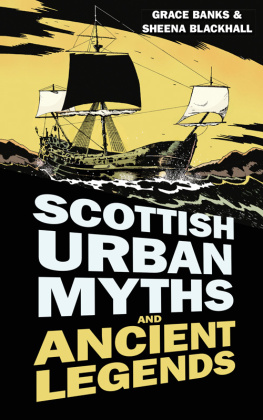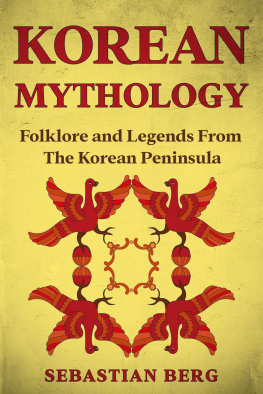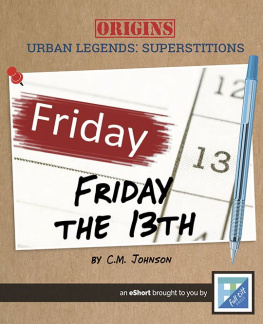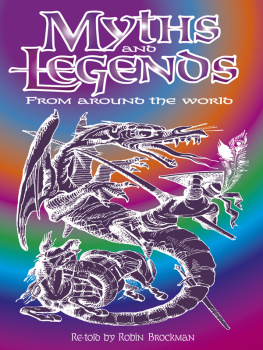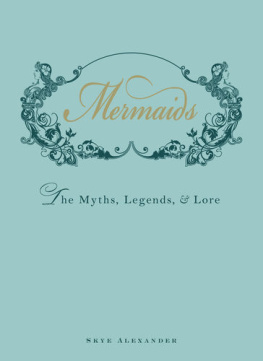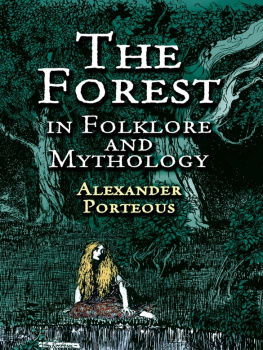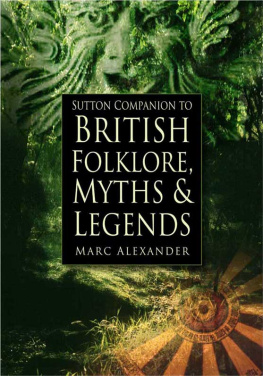D.R. McElroy - Superstitions: A Handbook of Folklore, Myths, and Legends from Around the World
Here you can read online D.R. McElroy - Superstitions: A Handbook of Folklore, Myths, and Legends from Around the World full text of the book (entire story) in english for free. Download pdf and epub, get meaning, cover and reviews about this ebook. year: 2020, publisher: Wellfleet Press, genre: Religion. Description of the work, (preface) as well as reviews are available. Best literature library LitArk.com created for fans of good reading and offers a wide selection of genres:
Romance novel
Science fiction
Adventure
Detective
Science
History
Home and family
Prose
Art
Politics
Computer
Non-fiction
Religion
Business
Children
Humor
Choose a favorite category and find really read worthwhile books. Enjoy immersion in the world of imagination, feel the emotions of the characters or learn something new for yourself, make an fascinating discovery.

- Book:Superstitions: A Handbook of Folklore, Myths, and Legends from Around the World
- Author:
- Publisher:Wellfleet Press
- Genre:
- Year:2020
- Rating:5 / 5
- Favourites:Add to favourites
- Your mark:
- 100
- 1
- 2
- 3
- 4
- 5
Superstitions: A Handbook of Folklore, Myths, and Legends from Around the World: summary, description and annotation
We offer to read an annotation, description, summary or preface (depends on what the author of the book "Superstitions: A Handbook of Folklore, Myths, and Legends from Around the World" wrote himself). If you haven't found the necessary information about the book — write in the comments, we will try to find it.
D.R. McElroy: author's other books
Who wrote Superstitions: A Handbook of Folklore, Myths, and Legends from Around the World? Find out the surname, the name of the author of the book and a list of all author's works by series.
Superstitions: A Handbook of Folklore, Myths, and Legends from Around the World — read online for free the complete book (whole text) full work
Below is the text of the book, divided by pages. System saving the place of the last page read, allows you to conveniently read the book "Superstitions: A Handbook of Folklore, Myths, and Legends from Around the World" online for free, without having to search again every time where you left off. Put a bookmark, and you can go to the page where you finished reading at any time.
Font size:
Interval:
Bookmark:
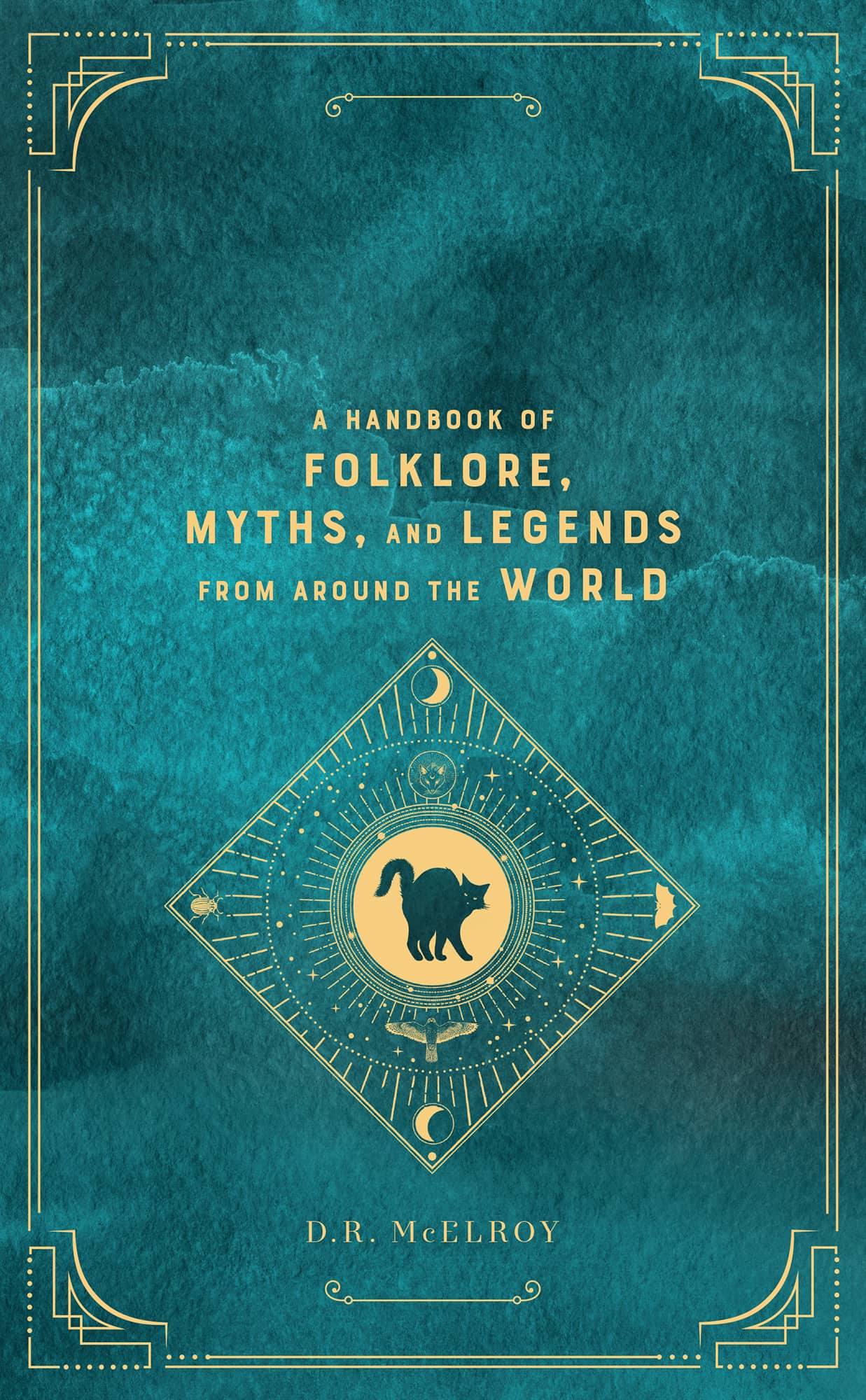
A HANDBOOK OF
FOLKLORE,
MYTHS, AND LEGENDS
FROM AROUND THE WORLD
D.R. McELROY



Do you think black cats are unlucky? It is a fact that adoptions of black cats are much less frequent than those of non-black cats. Surprised? Medical facilities routinely report that the number of accidents with injury goes way up during periods of a full moon. And youve likely heard the old wives tale that it is unlucky for the groom to see the bride in her wedding dress before the wedding ceremony.
The question that begs to be answered is why are humans superstitious? Theres an argument to be made that superstitions arose from humanitys need to exert control over a confusing and chaotic world. Seems reasonable, but how are black cats something that we can control? Historically, the ancient Egyptians revered all cats as sacred regardless of color. Cats controlled the vermin populations and helped prevent the spread of disease, as well as prevented small creatures from eating up the stores of grain needed to ward off starvation. There is a legend that King Charles I of England had a black pet cat that he adored so much that when it died the king proclaimed all of his luck had perished as well. The story claims that Charles I was arrested the very next day for treason, proving that his cat had lucky (or unlucky!) abilities.
Time is a factor in the development of superstitions as well. Something that may have started out as a cautionary tale, such as the prohibition against opening umbrellas indoors, eventually morphs into a general bit of common sense that we still take for granted. In the case of umbrellas, in their early days of development umbrellas were huge, bulky, and awkward, with powerful springs attached to their opening mechanism. A running child could be seriously injuredor a fragile glass ornament shatteredby the sudden deployment of a steel-ribbed bumbershoot indoors where it is least expected. As time passes, the reason for the prohibition may be lost, but the prohibition remains.
While the development of superstitions and myths is a fascinating study, this book would be a thousand pages long if we tried to discern the cause or development behind each story here. We will look at the development of certain practices where it is particularly fascinating or relevant.
So, have you ever wondered what the difference is between a myth and a superstition? Are legends and folk tales the same thing? Where did all of these things come from? Lets look at each one.
Superstition: a widely held, but unsubstantiated belief in supernatural causation of outcomes related to particular odd rituals. For example, if you spill the salt but quickly throw a pinch of it over your left shoulder, it is believed that bad luck will be avoided. These practices are commonly attached to beliefs in prophecy, luck, or magic. Certain religious practices may be labeled superstition if the religion associated with them is not the predominate religion of the region (for example, voodoo in the largely Christian United States).
Myth: a traditional story used to explain the history of a people or a natural phenomenon such as storms or earthquakes, which typically involves supernatural beings and events. The pantheon of ancient Greek and Roman gods and goddesses is an example of the mythology of a civilization. Myths are frequently associated with religion, but mythology is only a part of what defines religion. Other parts are ritual, doctrine, belief or faith, and institutionalization.
Legend: a popular or traditional story usually associated with a particular person or place, sometimes believed to be part of a true history of a people but without substantiated evidence of such. The tales of King Arthur and his Knights of the Round Table are excellent examples of legend; while an historical figure such as Arthur may have existed in ancient Britain, there is little actual proof as to who he might have been.
Folklore: traditional customs, beliefs, and stories of a particular community which are passed down from generation to generation through oral discourse. This is the main difference between folklore (and folk tales) and other traditionsthe verbal communication of the stories among community members. The stories of Pecos Bill and Paul Bunyan in the US are examples of folklore.
Here are a couple of other definitions that might be useful:
Fable: a short story, frequently featuring animal characters, that is used to teach a moral lesson. Think The Fox and the Grapes or The Scorpion and the Frog from Aesops Fables.
Parable: similar to a fable, except that parables use human characters instead of animals or inanimate objects to teach the lesson. Jesus used parables like the Prodigal Son to communicate his message of love. Just to be clear, in many regions of the world, Jesus himself is a myth or a legend and not a historical figure.
Urban legend (also urban myth): unique in that they are entertaining stories passed off as factual; the internet has caused such stories to gain wide-spread believers, whereas such stories tended to spread by word-of-mouth much more slowly in years past. Examples of urban legends are Alligators in the Sewers, the Rattlesnake in the Fur Coat, the Hook Man tales (which were formerly spread as campfire stories), and the Neiman Marcus Cookie Recipe. One of the newest urban legends is Slender Man, which was made into a recent movie.
These definitions help us identify various types of stories, but they are not critical unless one is a professor of folklore or some such. Just keep in mind that what these stories have in common is that they are fiction due to their general lack of historical evidence.
This book is going to examine some of the myths and superstitions from around the world. Some you may be familiar with while some may be completely new to you. Hopefully, you will find this book entertaining and enlightening, whether you believe the stories or not. The stories are grouped by continent, but not every country in each continent will be listedsadly, there just isnt room for all of them!
This bookfor the sake of simplicity and claritywill contain selections from the enormous body of myth and superstition. The reader may find that the stories they know from their own culture might be expressed differently (including name changes and godly powers) than the ones they grew up with. Hopefully, readers can find joy in the variety while learning about different aspects of familiar tales.

Africa remains a mysterious and unknown world to most Westerners. At once vast and modest, empty and lush, Africa remains an enigma in history and in modern times. Historical Africa was the realm of mighty kings, rich in material wealth and rulers of enormous tracts. Incredible civilizations rose and fell here while much of the rest of the world was still living in caves. African mythology draws from a very deep well of religious and political experience; indeed, no other land holds such lasting imagery and traditions as those of this incredible place.
Font size:
Interval:
Bookmark:
Similar books «Superstitions: A Handbook of Folklore, Myths, and Legends from Around the World»
Look at similar books to Superstitions: A Handbook of Folklore, Myths, and Legends from Around the World. We have selected literature similar in name and meaning in the hope of providing readers with more options to find new, interesting, not yet read works.
Discussion, reviews of the book Superstitions: A Handbook of Folklore, Myths, and Legends from Around the World and just readers' own opinions. Leave your comments, write what you think about the work, its meaning or the main characters. Specify what exactly you liked and what you didn't like, and why you think so.

